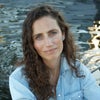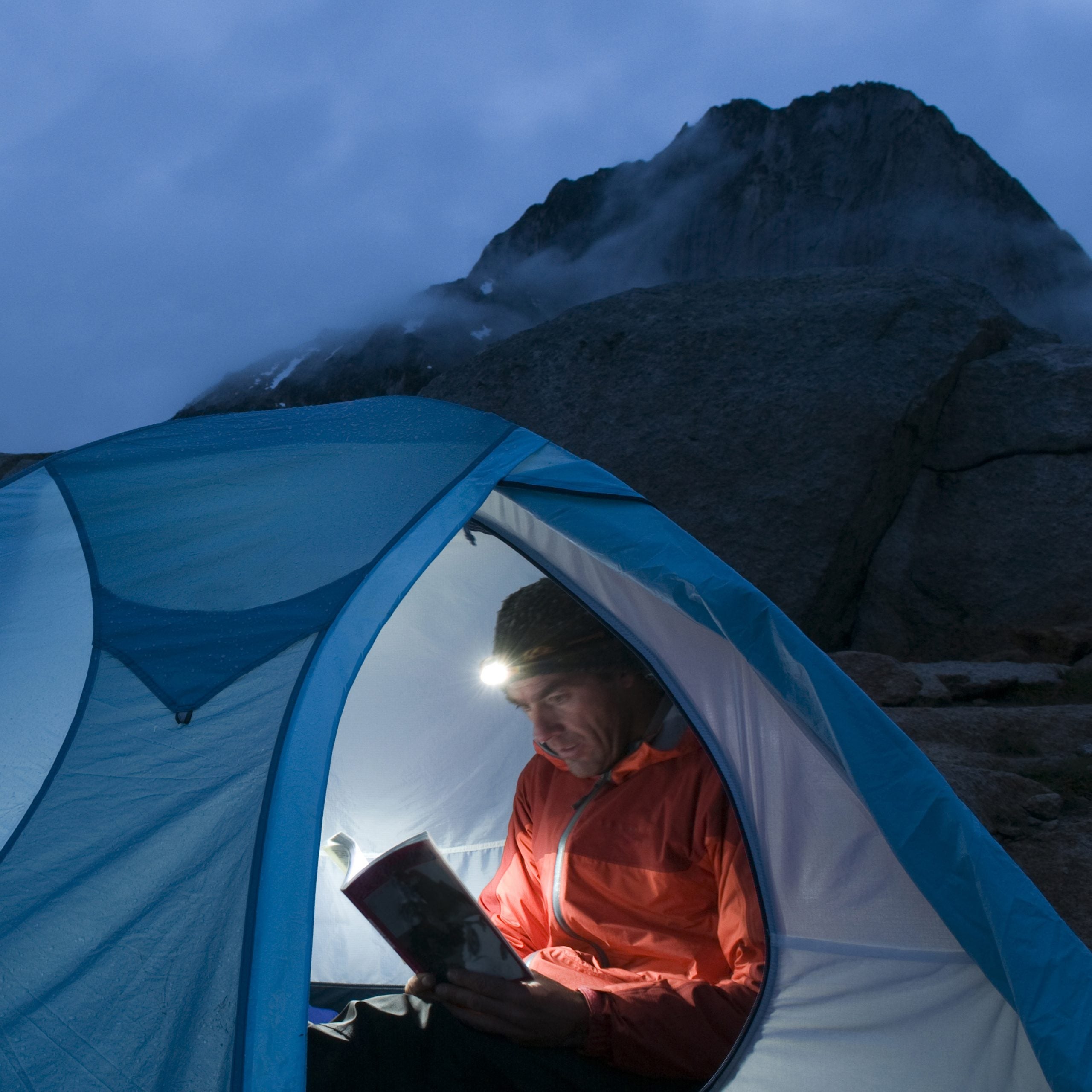Maybe itÔÇÖs an oversimplification to say that books can change your life, but words are important (we say from inside the word factory). Books can galvanize a desire to live a certain wayÔÇömore than one westward move has been spurred by a scuffed-up copy of Desert Solitaire.
We asked some of the people who inspire us with their athletic, artistic, and environmental feats if they credit any books with setting them on their paths. Turns out they do. And there were some real surprises in the mix.
Melissa Arnot Reid
ÔÇśWest with the NightÔÇÖ by Beryl Markham
Mountaineer Melissa Arnot Reid frequently returns to of growing up in Kenya and becoming the first woman to fly solo across the Atlantic. ÔÇťShe was tough but also beautiful and gentle, and her writing really evoked adventure,ÔÇŁ Reid says. ÔÇťI heard an interview about her on NPR, and they were saying that an African elder said to her father, when Markham was young, that she would always have success but never happiness. ThatÔÇÖs always intrigued me.ÔÇŁ
Her Favorite Quote: ÔÇťWe fly, but we have not ÔÇśconqueredÔÇÖ the air. Nature presides in all her dignity, permitting us the study and the use of such of her forces as we may understand. It is when we presume to intimacy, having been granted only tolerance, that the harsh stick falls across our impudent knuckles and we rub the pain, staring upward, startled by our ignorance.ÔÇŁ
Alexi Pappas
ÔÇśWillpower: Rediscovering the Greatest Human StrengthÔÇÖ by Roy F. Baumeister
When distance runner Alexi Pappas was assigned psychologist BaumeisterÔÇÖs book about self-control as summer reading in college, it changed the way she thought about her limits as an athlete. ÔÇťThe book gave me the words to identify some of the things I was feeling,ÔÇŁ Pappas says. ÔÇťIt taught me that I have a certain amount of willpower that can be depleted but can also be replenished, which are both such important things to know and realize as an athlete trying to push boundaries and improve yet also have longevity. It also told me that it is okay and super important to sleep.ÔÇŁ
Our Favorite Quote: ÔÇťFor most of us, though, the problem is not a lack of goals but rather too many of them.ÔÇŁ
Laird Hamilton
ÔÇśNatural Born HeroesÔÇÖ by Christopher McDougall
Cooperation might not be the first thing that comes to mind when you think about superhuman solo athlete Laird Hamilton, but thatÔÇÖs what he got out of , McDougallÔÇÖs look at how the Laird-like athletes of ancient Greece are still going strong on the island of Crete. Hamilton says he was struck by the idea that evolution and survival are based on teamwork. ÔÇťCompetition has its place, but if we are really going to get somewhere, cooperation is key,ÔÇŁ he says. HeÔÇÖs alsoÔÇöslightly less surprisinglyÔÇöinto the idea that the goat herders of ancient Crete got their power from living close to the land.
Our Favorite Quote: ÔÇťCrete has another nicknameÔÇöÔÇśthe Island of HeroesÔÇÖÔÇöwhich IÔÇÖd only discovered by accident. I was researching Pheidippides, the ancient Greek messenger who inspired the modern marathon, when I came across an odd reference to a modern-day Pheidippides named George Psychoundakis, better known as ÔÇśthe Clown.ÔÇÖ The Clown was awe-inspiring. When HitlerÔÇÖs forces invaded Crete, he transformed himself overnight from a sheep farmer into a mountain-running messenger for the Resistance. Somehow, George was able to master challenges that would stagger an Olympic athlete: he could scramble snowy cliffs with a sixty-pound pack on his back, run fifty-plus miles through the night on a starvation diet of boiled hay, and outfox a Gestapo death squad that had him cornered. George wasnÔÇÖt even a trained soldier; he was a shepherd living a sleepy, peaceful life until the day German parachutes popped open over his home.
Until then, IÔÇÖd thought the secrets of ancient heroes like Pheidippides were either half myth or lost to antiquity, but here was a normal man pulling off the same feats 2,500 years later. And he wasnÔÇÖt alone.ÔÇŁ
Amy Kober
ÔÇśThe Moon by Whale LightÔÇÖ by Diane Ackerman
, national communications director for American Rivers, was on a coastal ecology field study in college when she read AckermanÔÇÖs account of tagging along on wildlife expeditions. It underscored how much Kober wants to protect wild places. ÔÇťWe were on the west coast of Vancouver Island, immersed in old growth and wild beaches and skinny-dipping in bioluminescence,ÔÇŁ she says. ÔÇťAnd then I found that mirrored my own awe and sense of discovery. I still have the book, and itÔÇÖs all underlined, with a list of words and phrases scribbled on the back page.ÔÇŁ
Our Favorite Quote: ÔÇťThere was nothing to do but wait. It is always like this for naturalists, and for poetsÔÇöthe long hours of travel and preparation, and then the longer hours of waiting. All for that one electric, pulse-revving vision when the universe suddenly declares itself.ÔÇŁ
Taylor Rees
ÔÇśPilgrim at Tinker CreekÔÇÖ by Annie Dillard
Patience and an appreciation for detail are two shared job requirements for filmmakers and environmental organizers. , who does both of these jobs, says made her realize she was part of the ecosystem around her, instead of just an observer. ÔÇťHer writing became a practice of awareness for me, something I try to embody whenever I am outside,ÔÇŁ Rees says. ÔÇťItÔÇÖs put my work in climate change, science, film, and digital media into contextÔÇöput it back into the living world, where the reasons for working began and belong.ÔÇŁ
Her Favorite Quote: ÔÇťOur life is a faint tracing on the surface of mystery, like the idle curved tunnels of leaf miners on the face of a leaf. We must somehow take a wider view, look at the whole landscape, really see it, and describe whatÔÇÖs going on here. Then we can at least wail the right question into the swaddling band of darkness, or, if it comes to that, choir the proper praise.ÔÇŁ
Fitz Cahall
ÔÇśThinking Fast and SlowÔÇÖ by Daniel Kahneman
In his job as host of the , breaks down a lot of the one-dimensional conventions we have about the outdoors, from to . The book that Cahall says colored a lot of his thinking, , does the same, just on a different scale. ÔÇťI think for me it basically comes down to this: there are a lot of obvious ways of looking at the world and at people, but they arenÔÇÖt always the correct ones,ÔÇŁ he says. ÔÇťWe are really good at tricking ourselves into following others and our own deep biases. Right now, I think itÔÇÖs worth examining how we think, how we engage, and how we empathize with others. There are a lot of ideas in that book, but I think whatÔÇÖs important is that questioning our assumptions is more imperative than ever.ÔÇŁ
Our Favorite Quote: ÔÇťOur comforting conviction that the world makes sense rests on a secure foundation: our almost unlimited ability to ignore our ignorance.ÔÇŁ
Mike Douglas
ÔÇśThe High ║┌┴¤│ď╣¤═° of Eric RybackÔÇÖ by Eric Ryback
Ryback was the first person to thru-hike the Pacific Crest Trail. He was 18 at the time, and is the first book that Mike Douglas, the godfather of freeskiing, remembers reading. RybackÔÇÖs claims about hiking the PCT end-to-end were disputed after his publisher alleged he hitchhiked parts of the trip, but his stories about the sufferfest stuck with Douglas. ÔÇťI had just gotten really into skiing and hiking, and it helped fuel my wanderlust,ÔÇŁ Douglas says. ÔÇťConsidering I read it over 30 years ago and can still remember some details and the title shows it had some affect on me.ÔÇŁ
Our Favorite Quote: ÔÇťThis is a personal account of a 2,500-mile trek to manhood.ÔÇŁ
ÔÇőJainee Dial
ÔÇśNature, Man, and WomanÔÇÖ by Alan Watts
, cofounder of the womenÔÇÖs gear site , says she reads when sheÔÇÖs feeling overwhelmed and disconnected from the outdoors. ItÔÇÖs a reminder to get outside when she gets too sucked into running a business in a city. ÔÇťAlan Watts was the Carl Sagan of Taoism and mindfulness, in my opinion, and this book has the capacity to challenge the over-intellectualization of the phrase ÔÇścommuning with nature,ÔÇÖ which has a kind of ridiculous tone these days,ÔÇŁ she says.
Her Favorite Quote: ÔÇťIn many so-called primitive cultures it is a requirement or tribal initiation to spend a lengthy period of time alone in the forests or mountains, a period of coming to terms with the solitude and nonhumanity of nature so as to discover who, or what, one really isÔÇöa discovery hardly possible while the community is telling you what you are, or ought to be.ÔÇŁ
Forest Woodward
ÔÇśThe New American Road Trip MixtapeÔÇÖ by Brendan Leonard
When he started living out of his station wagon after a bad breakupÔÇöa trip that would become the backbone of ÔÇöBrendan Leonard was asking himself a lot of questions, like ÔÇťShould I have kids?ÔÇŁ and ÔÇťWhat do I really need?ÔÇŁ says he was struck by one question: ÔÇťWhat is a life?ÔÇŁ Now he goes back to the question all the time. ÔÇťI find my answers vary from day to day,ÔÇŁ Woodward says.┬áÔÇťBut they always push me toward wild spaces, toward meaningful relationships, toward the exploration of self and the testing of our physical limits.ÔÇŁ
Our Favorite Quote: ÔÇťI had been driving all over the west since I was 24, watching great mountains and endless deserts pass by my car windows as my mind wandered, seven or nine days at a stretch. I didnÔÇÖt want to fly halfway around the world, see the Eiffel Tower, the Colosseum, or whatever. I felt better placing a bet on driving west.ÔÇŁ
Bill McKibben
Anything by Edward Abbey or Wendell Berry
Writer and┬á┬áfounder┬áBill McKibben, , says he was inspired early on by the works of Edward Abbey and Wendell Berry. The two took very different tacks when it came to environmental activism (itÔÇÖs hard to imagine Berry blowing anything up), but they were both wholeheartedly committed to the places they lived. ÔÇťIn some ways they were opposites, and in some ways very close, and they both admired each other enormously,ÔÇŁ McKibben says. ÔÇťIn fact, thereÔÇÖs a kind of funny correspondence somewhere where they try to pin the label of AmericaÔÇÖs Great Essayist on the other.ÔÇŁ
So hereÔÇÖs some Berry:
ÔÇťAlways in the big woods when you leave familiar ground and step off alone into a new place there will be, along with the feelings of curiosity and excitement, a little nagging of dread. It is the ancient fear of the Unknown, and it is your first bond with the wilderness you are going into.ÔÇŁ
And some Abbey:
ÔÇťI am twenty miles or more from the nearest fellow human, but instead of loneliness I feel loveliness. Loveliness and a quiet exultation.ÔÇŁ


